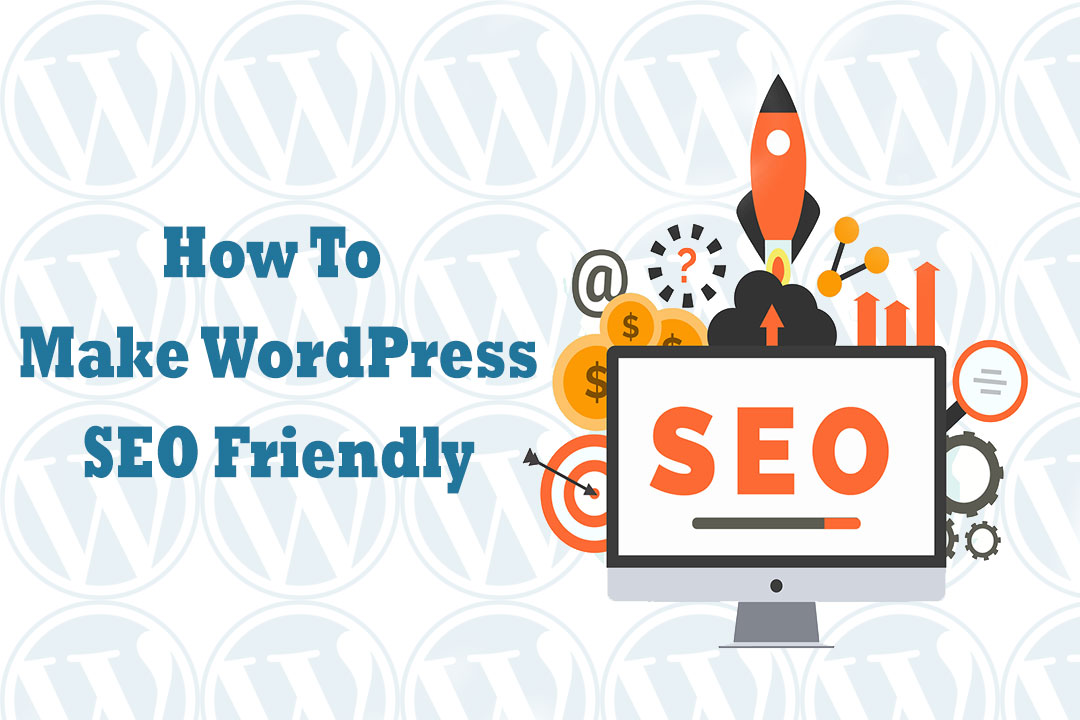How to Make WordPress SEO Friendly
In today’s online space; just having a beautiful and visually stunning website is not enough to drive traffic to your website and increase online presence. Today there are numerous ways to drive traffic to your website such as Social media, Online Videos, Blogs, News/PR, Email marketing, SEO, Podcasting, etc. Amongst this Search Engine Optimization (SEO) is one of the best strategies for bringing in long-term benefits.
In his blog post we shall focus on WordPress SEO, as WordPress is the most popular CMS for website development in the world today. You might already know that Google uses over 200 ranking factors in their algorithm, but in this blog we shall discuss only a few basic factors which are more relevant to websites build with WordPress. (Factors like meta tags, content optimization, SSL, etc are not included in this blog as they are applicable to all kind websites)
1. WordPress Hosting
The performance of the website, uptime and security aspect of the website affects the SEO performance. You surely don’t want hosting issues affecting your website overall SEO. Since Google takes speed into account when ranking sites, a good WordPress host can help you load your website faster. Dedicated WordPress Hosting are highly compatible with WordPress and enhances the performance of WP websites. Using a trusted and fully managed WordPress hosting service will surely go a long way in achieve optimum loading speed and better uptime.
2. Optimized WordPress Theme
WordPress offers an array of themes that can be used to give your website a strong foundation. However, choose a theme that is optimized for search engines. Your theme is one of the most important choices you’ll make for your WordPress site. It determines your site’s appearance and layout and plays a key role in your SEO efforts. Some WordPress themes are more SEO-friendly than others, as the theme plays an important role in the site-speed, security, rich snippets, browser compatibility and other factors which influence SEO.
3. Use SEO Plugins
By default, WordPress will use your page or post title as the HTML page title tag value and doesn’t bother to include the Meta description tag. Dedicated plug-in like Yoast SEO gives you a number of useful tools for improving your site’s SEO. It helps to optimize the page Title tag, Meta description, etc. It’s very easy to use or you may find online tutorial on how to use it. Before deciding on which plugin(s) to use always make sure you check for plugin compatibility with your version of WordPress, Usage, Popularity, plugin updates, and more.
4. Responsive WordPress Theme
It is recommended to pick a mobile-compatible WordPress theme to best suit for those who are searching on mobile. Most theme descriptions will tell you whether they’re responsive and mobile-friendly or not. Just because a theme has implemented basic responsive design principles, that doesn’t mean it’s 100% mobile-friendly. Make sure you pick a theme that’s responsive and test it before using it for your website.
5. SEO friendly Permalink Structure
Permalinks are the permanent URLs to your individual pages and blog posts. By default, WordPress uses web URLs which have day and name in them; however, WordPress offers you the ability to create a custom URL structure for your permalinks. Choose an SEO Friendly Permalink Structure. ‘Post name’ option is the most popular choice for optimal WordPress SEO and make sure you use your keyword in the permalink.
For example, if your page is about ‘WordPress Website Development’, your ideal permalink your be – https://parsidio.com/wordpress-website-development/
6. Manage Blog Comments
As a website owner you surely don’t want spammers to use automated software to post comments to your blogs. They do this to build backlinks to their website or advertise their product and services. Spam comments make your site look unprofessional and affect your website credibility. In WordPress, automatic approval of comments is on by default. So you should turn it off and validate all comments manually.
7. Social Media Integration
When choosing a WordPress theme, remember about social media integration. Strictly speaking, social media is not part of SEO, but it is another very important channel for acquiring site traffic, closely interrelated with SEO. Make sure the theme has an option to link it to social media profiles like FaceBook, LinkedIn, YouTube, Pinterest, Instagram, etc.
8. Website Structure
Your website architecture – the way pages are linked together – should be an essential part of your website planning. Well-structured navigation, inner links, and content will make it easier for bots to crawl and index your pages, improving their chances of ranking higher in Google’s results. So, when you choose a WordPress theme, pay attention to the layout structure, its navigation and logic. Examine the live demo of the template you are going to purchase, for usability, i.e. if the way of finding what you want is intuitive and simple.
Final thoughts
All though WordPress is the most SEO friendly content management system which lets you build Google friendly websites in no time, WordPress isn’t fully-optimized out of the box. You still need to install a few plugins and make a few tweaks to get the most out of it. In case you are pressed for time and need help, Parsidio is All-in-One platform to help you build, host, maintain and market your WordPress website.
We’re happy to answer any questions you may. Contact Us Today



